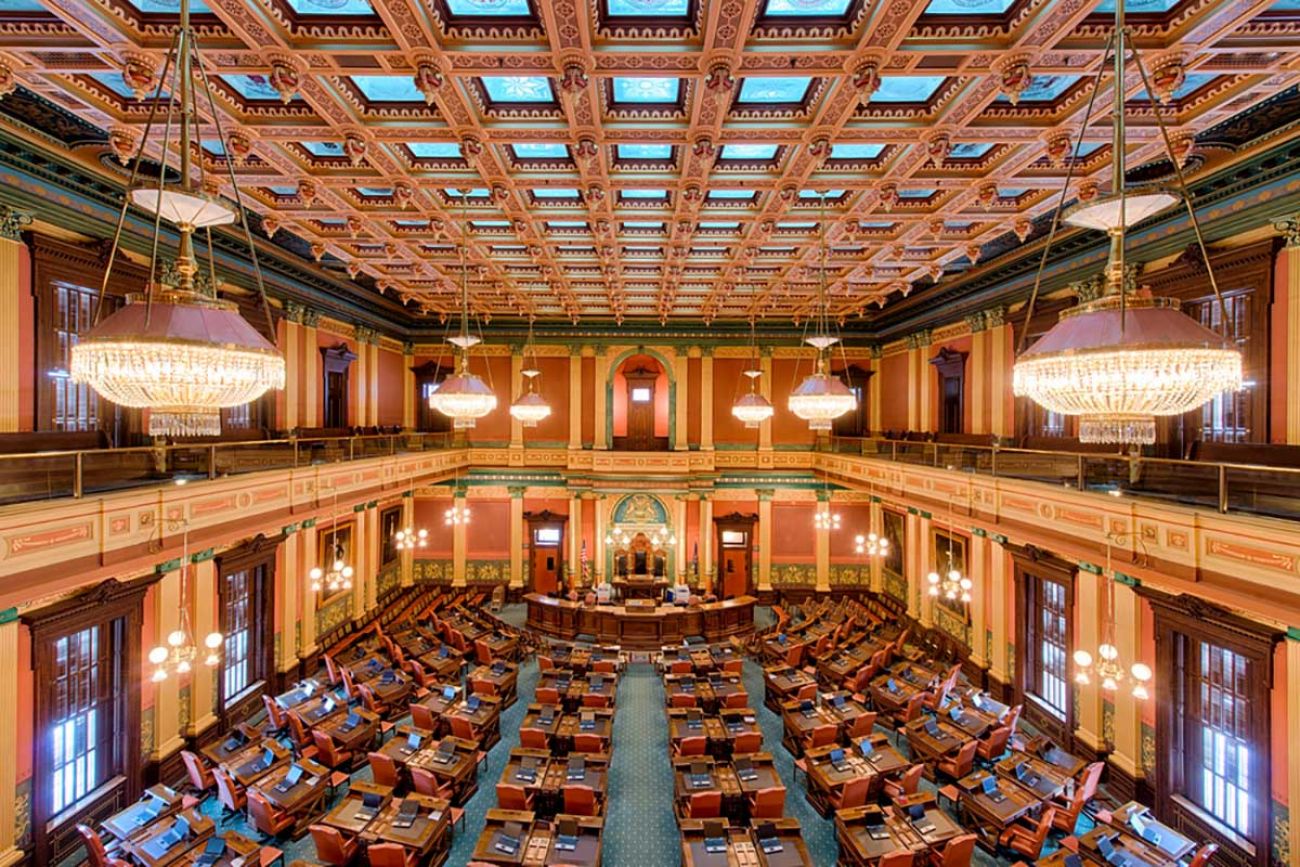By Michael Bars | Originally published by The Hill
Michigan voters have long played a pivotal role in presidential elections, until now.
The House Elections Committee in Lansing recently approved House Bill 4156, legislation which would enroll Michigan in the so-called “National Popular Vote Interstate Compact,” which could soon be taken up on the House Floor.
It may sound innocent, but National Popular Vote is a left-wing scheme to take over states’ elections and fundamentally transform our constitutional system for electing presidents. If implemented, it would surrender Michigan’s considerable influence in this process to large population centers of the East and West coasts of the country.
In other words, Michiganders would be relegated from decisive swing state voters to mere bystanders in presidential elections.
No longer would Michigan’s fifteen electoral votes go to the presidential candidate who wins support from a majority of the state’s voters. Rather, they would be assigned to whichever candidate gets the most total votes across all the nation’s various state election systems.
So the loser of presidential elections in Michigan would often receive all of Michigan’s electoral votes, with the outcome decided instead by the voters in California, New York, Florida, Texas, and Illinois.
New York has 19 million residents, California 39 million, Texas 32 million, Florida 22 million. Michigan has a population of only about 10 million — not much more than metropolitan Chicago, which one can travel through by car in less than an hour.
This doesn’t just dilute the vote of Michiganders — it obliterates it. The Founding Fathers were careful to devise a system where smaller states and less urban populations had a fair say in electing the president.
Incidentally, the Electoral College is also fair to the larger states. Their influence in choosing presidents is preserved even when they have relatively low rates of voter turnout, as California, New York and Texas all do.
But Michigan especially has a lot to lose. Under the current system, Michigan has a magnetic effect on candidates because it has continually swung back and forth between the parties. It has thus long welcomed presidential hopefuls as a campaign-trail “must.” This is the kind of engagement that voters of all types can appreciate.
National Popular Vote’s brazen proponents deceptively argue that their scheme would force candidates to campaign in every state, but this simply isn’t true.
I remember the excitement of George H. W. Bush’s 1992 “Spirit of America” rail tour in Michigan. After stopping in Plymouth, it traveled through my hometown no more than a quarter mile from where I attended elementary school.
“[O]n a pleasant September afternoon, the long 21-car Union Pacific passenger train sporting two new CSX Transportation’s locomotives, decked out with a patriotic red, white, blue and yellow scheme, having two American flags flying on its flanks with number ‘1992,’ on the lead engine, pulled into the Plymouth railroad station, between Starkweather and Mill, with full pomp and fanfare,” Don Howard of Plymouth Voice recalled in 2018.
“As the slow-moving train came to a halt, Bush stepped out on the rear platform of a last car ‘Baltimore,’ one reserved by the railroad for Presidents, with his sleeves rolled-up he waved to the fans that had spent hours waiting,” he added.
In contrast, the National Popular Vote scheme would render Michigan politically insignificant. Every presidential candidate, in coordination with their brain trust of strategists, consultants and advisers, would allocate their limited time and resources to regions that matter more. The incentive would be to campaign in areas that maximize some combination of population density and partisan uniformity. Michigan, only the 18th densest state and one of the most closely divided from a partisan perspective, loses out on both of those metrics.
Why would candidates bother campaigning in Michigan if they could earn the state’s fifteen electoral votes by campaigning in the right parts of California, Texas, or Florida? Would they take the priorities of Michigan voters to heart if a campaign platform built on the needs of California or Texas voters could still yield victory in Michigan, perhaps even at our expense locally? Of course they wouldn’t.
Michigan is an industrial state. Do you think local concerns about trade with China is the same in California as in Michigan? How about Texas? Not a chance.
In 2016, Hillary Clinton did not even set foot in “blue” Wisconsin. She presumed herself the victor in a state that ultimately swung for Donald Trump. In 2020, Joe Biden’s own political calculus kept him out of “red” Ohio until October, when the state, long thought to be out of reach, was suddenly viewed as a potential pick up.
Like other schemes designed to increase the power of the political left, including ranked-choice voting, the corrupt private financing of local election offices (known colloquially as “Zuckerbucks”), Washington Democrats’ failed H.R. 1 national election takeover, and attempts to abolish the Senate’s 60-vote legislative filibuster, National Popular Vote should be rejected.
The integrity of our elections now rests in the hands of Michigan’s legislature. Free and fair elections should represent the will of the state’s voters, not a handful of big cities that determine a way of life for the entire nation.
Michael Bars is executive director of the Election Transparency Initiative and a Michigan native. He is a former White House Senior Communications Advisor and spokesman, National Security Council Director of Strategic Communications, and Deputy Assistant Secretary of Homeland Security.

